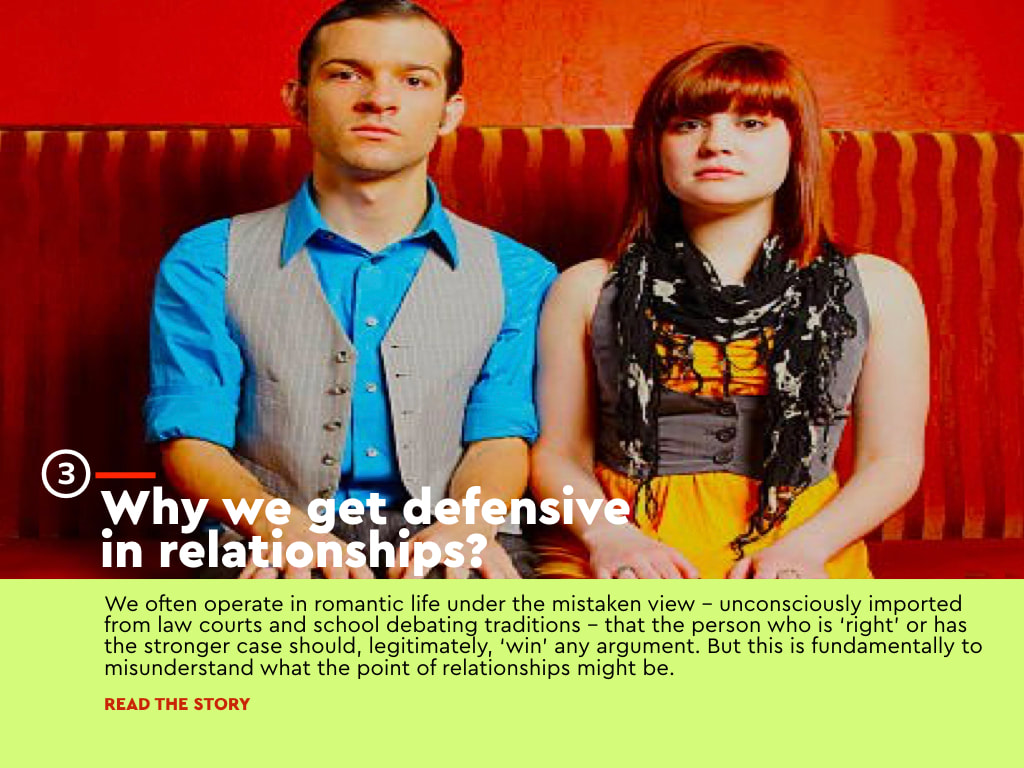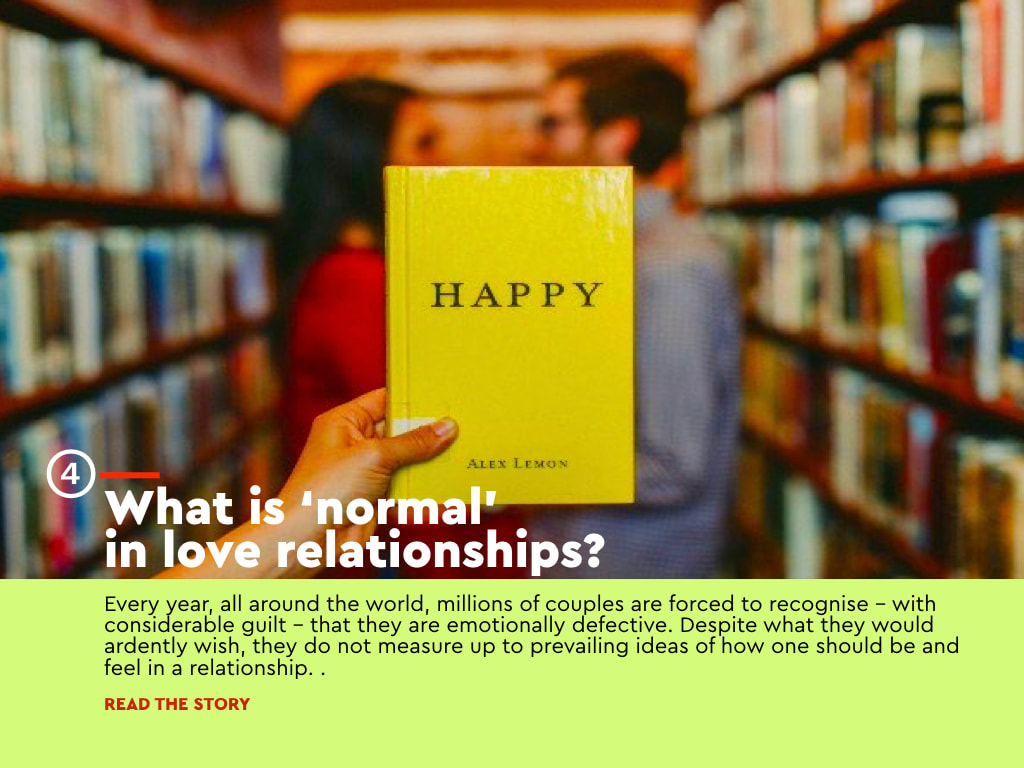Love relationships and sex
_
One of the main burdens which our culture has imposed upon long-term relationships is the idea that love and sex must always fit together. When sex starts with time to get less intense, it is this idea that starts to torment us […]
|
|
One of the great burdens which our Romantic culture has imposed upon long-term relationships is the idea that love and sexual fulfillment must always, if things are working as they should, fit neatly together. This beautiful and hugely convenient idea raises a passionate hope that over many years two people will not only like and help one another, manage their domestic finances reasonably well, perhaps raise a family, have enjoyable holidays, understand one another’s problems, schedule cleaning rotas, put up with each other’s failings, see each others’ parents and friends and pursue their careers in harmony, but they will also be devoted and exciting sexual partners, endlessly entwining and recombining, sometimes being gentle and slow, at others, brutal and urgent, travelling together on a shared, life-long erotic adventure. It’s this sublime idea that begins to torment us when – as is the case in almost every relationship – sex starts with time to get at once less intense and less frequent, more cautious and more frustrating, more at odds with daily life and eventually definitively more daunting as a prospect than reading a book, watching the news together or simply going to sleep. This can appear nothing short of a catastrophe, a sign of monstrous failing and very often a prelude to a break-up. And yet the problem is not ours alone. It is simply that almost everything that can make love go well seems primed not to make sex go well – and vice versa. We are afflicted by a fundamental misalignment in the qualities of character and spirit required by good sex on the one hand and successful love on the other. A relationship cannot survive in the long term without tenderness, soberness, practical intelligence and selective resignation. We have carefully to fathom another’s motives, explain our moods, overcome hurts and sulks and assume a mantle of predictability. Sex on the other hand, in its most dramatic, thrilling versions, demands that we be heedless, decadent, perhaps cruel or untenably submissive. It can involve the crudest language and moments of sublime degradation. In having to suffer from feelings of inadequacy around what happens in long-term love, we are the victims of major cultural failure: the failure of our surrounding culture to continually stress a realistic picture of an unavoidable tension between two crucial yet incompatible themes of existence. In a wiser world, we would collectively admit that the very rare cases where love and sex did run together were astonishing exceptions with no relevance whatsoever to most of our lives. We would instead learn to pay admiring attention to those who had accepted with a reasonable show of dignity and grace that the natural price of long-term togetherness is a decline in the quality and frequency of sexual contact – and that this is, in a great many cases, a price very much worth paying. |
|








